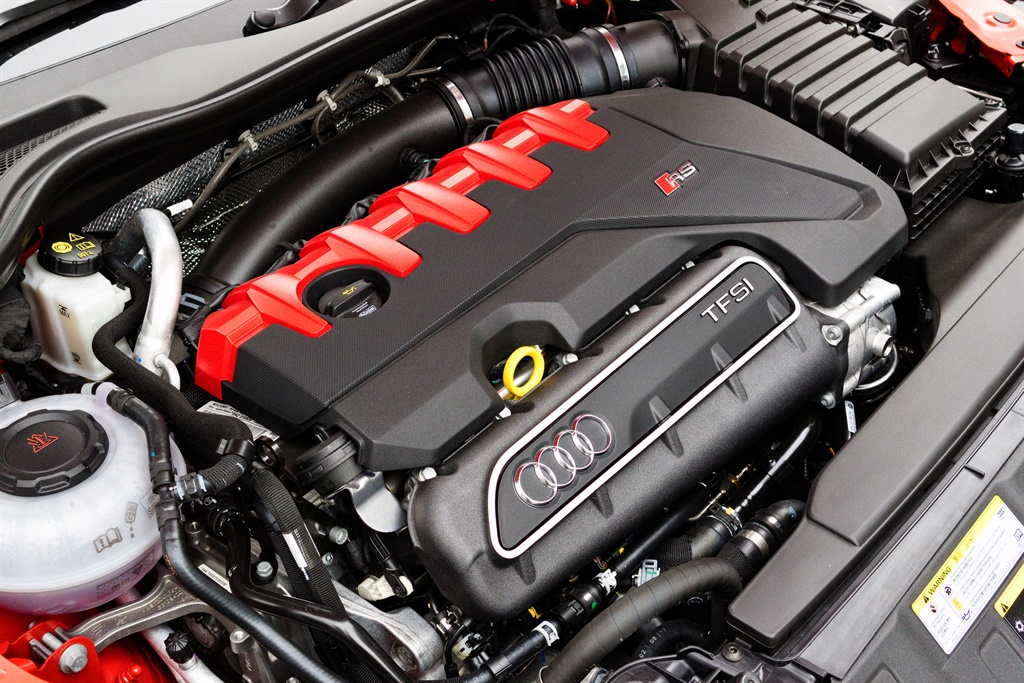
Differentiating your compact performance vehicle offering is not easy. The market is crowded with German 2.0-litre turbocharged cars, firing off four-cylinders and boosting immense performance.
The world’s most potent current production engine is AMG’s M139 2.0-litre four-cylinder. Attempting to rival it are a flood of other 2.0-litre engines from BMW, Ford, Renault, VW and now, even Hyundai.
As legislation keeps pressurising manufacturers to downsize, the 2.0-litre engine size and its four-cylinder configuration have been the natural convergence between achieving emissions targets and power outputs.
Substantial R&D resources are deployed to ensure that the current market of 2.0-litre turbocharged engines are the best in history. But the problem is that there are so many of them - and they all do very much the same thing.
Sounds is value
Powertrain characteristics can be altered with clever algorithms and engine management electronics, but that is a slightly artificial way to extracting some engine character in a performance car. And this where Audi has a distinct advantage.
Since the debut of its legendary Quattro coupe in 1980, Audi has remained committed to the five-cylinder engine. Although most other brands which once had a five-cylinder engine have abandoned it (most notably Volvo), the Audi engineering staff managed to repurpose and evolved its five-cylinder engines.
In a market where compact performance cars, whether they be coupes, hatchbacks, sedans or SUVs, now all have four-cylinders, Audi has achieved that rare marketing advantage of true differentiation.
With its second-generation Q3, the five-cylinder engine lives on – proving the new RSQ3 compact performance SUV with a unique selling point.
Five-cylinder engines can achieve a great compromise between an in-line four and V6, by being smoother than either. They are difficult to balance but Audi’s engineers have been working on the five-cylinder architecture for so long, that all the vibration and balance issues are contained.
Audi’s mastery of the five-cylinder engine gifts it something unique in the marketplace for performance SUVs, which has now become a very profitable segment.
Since 1980 the original five-cylinder turbo has grown from 2.1- to 2.5-litres litres of capacity. The original Audi five-cylinder engine made 147kW. In the new RSQ3 and RSQ3 Sportback, it boosts 294kW.
No need to fake it
But what makes the Audi five-cylinder engine so appealing, is its unique exhaust note. With an unusual 1-2-4-5-3 firing order, the Audi engine ignites a sequence which alternatives between adjacent cylinders and those at opposite ends of the block.
No matter how involved a set of active valves and flaps you add to any four-cylinder engine, it will never rival the acoustic drama of a five-cylinder. This is especially true with turbocharged engines, which do not possess the high engine speed ability to generate an inherent mechanical exhaust note.
In a world where all compact performance car engines are turbocharged, that additional cylinder distinguishes the Audi offering – by making it sound different and better than its rivals.
Remarkably powerful, balanced and imbued with a sound like no four-cylinder rival, the Audi five-cylinder engine is rightfully revered. In a world where engines only survive on their saleability, it is amazing that Audi has managed to keep its niche five-cylinder turbo relevant.




 Publications
Publications
 Partners
Partners















